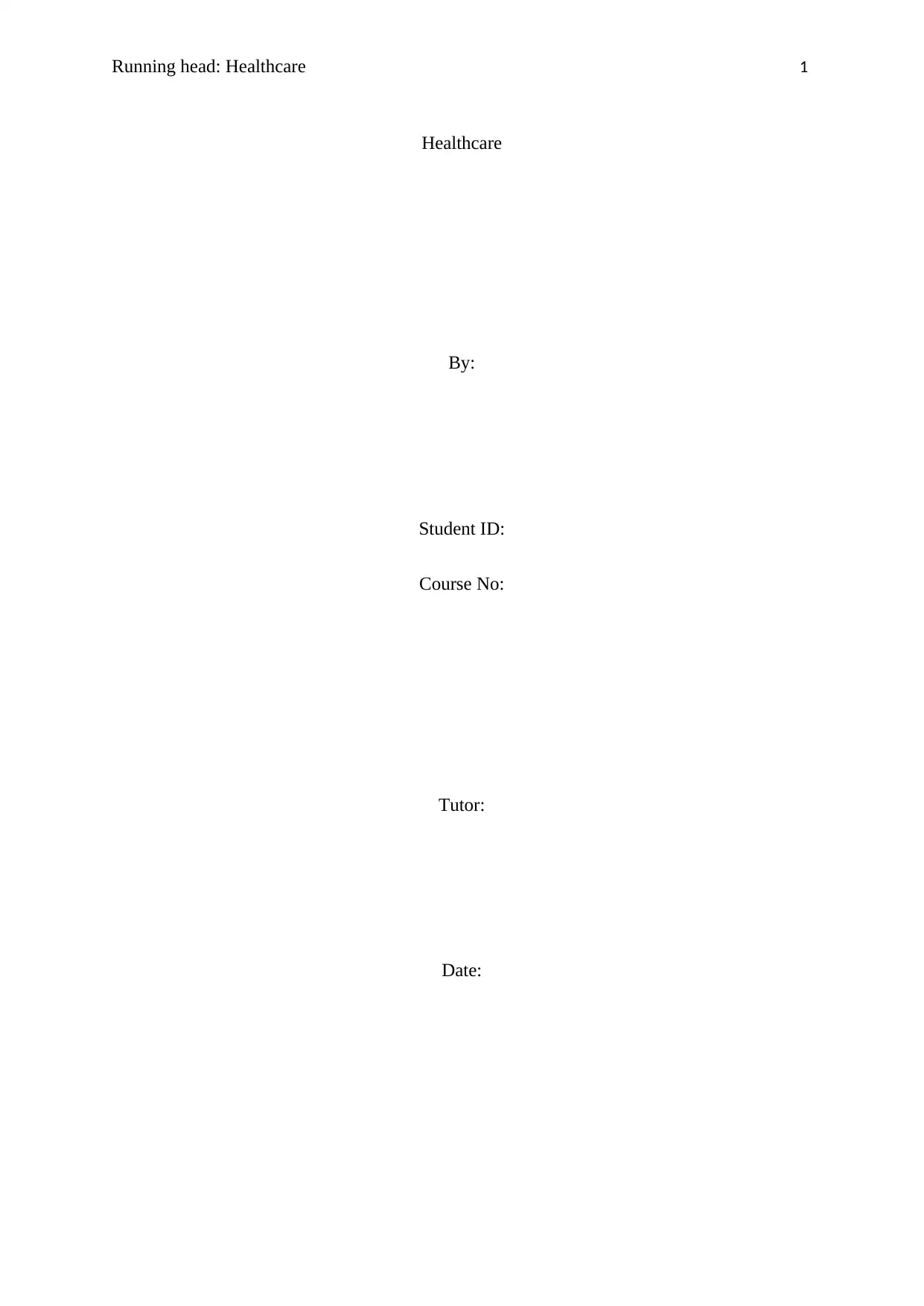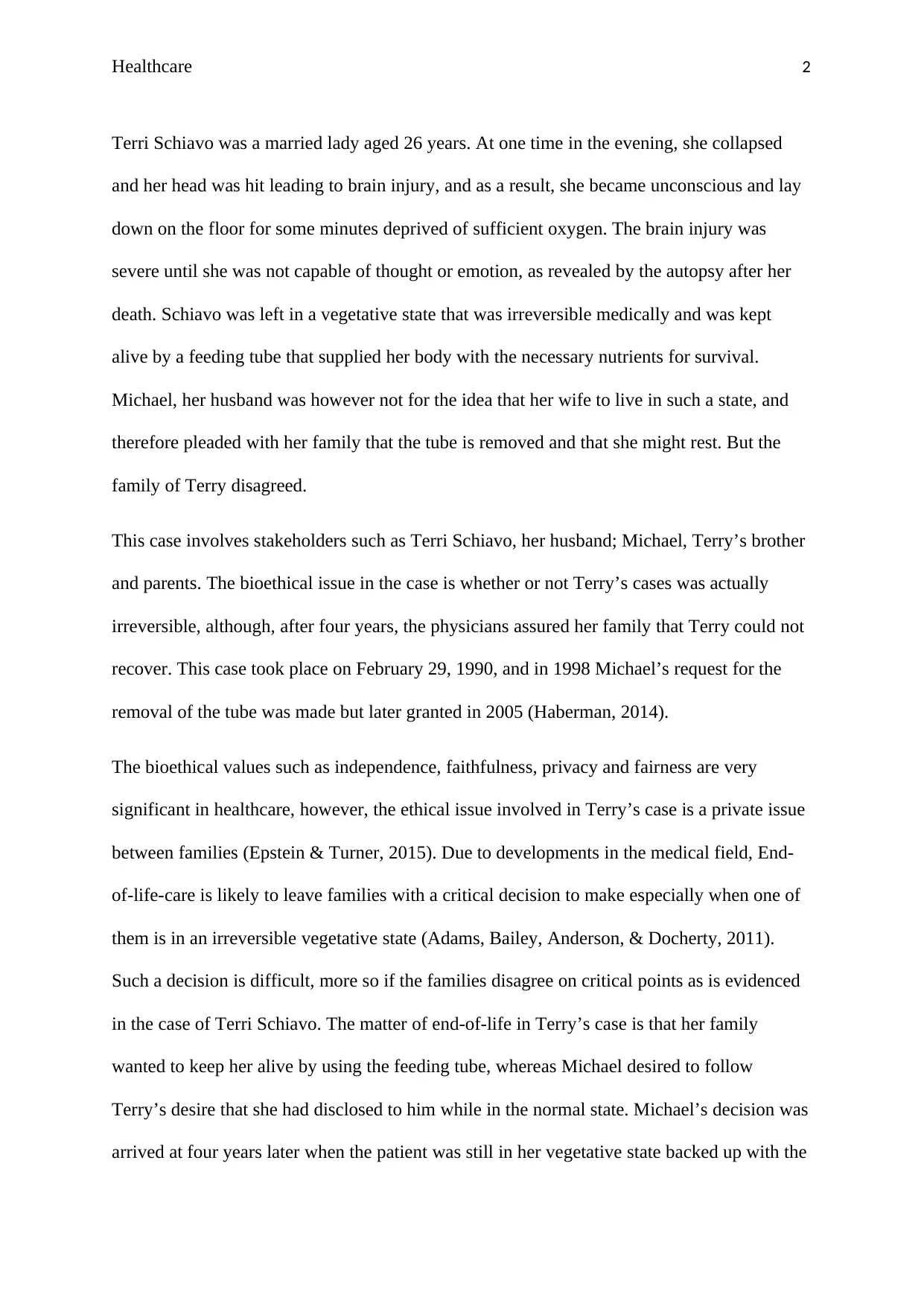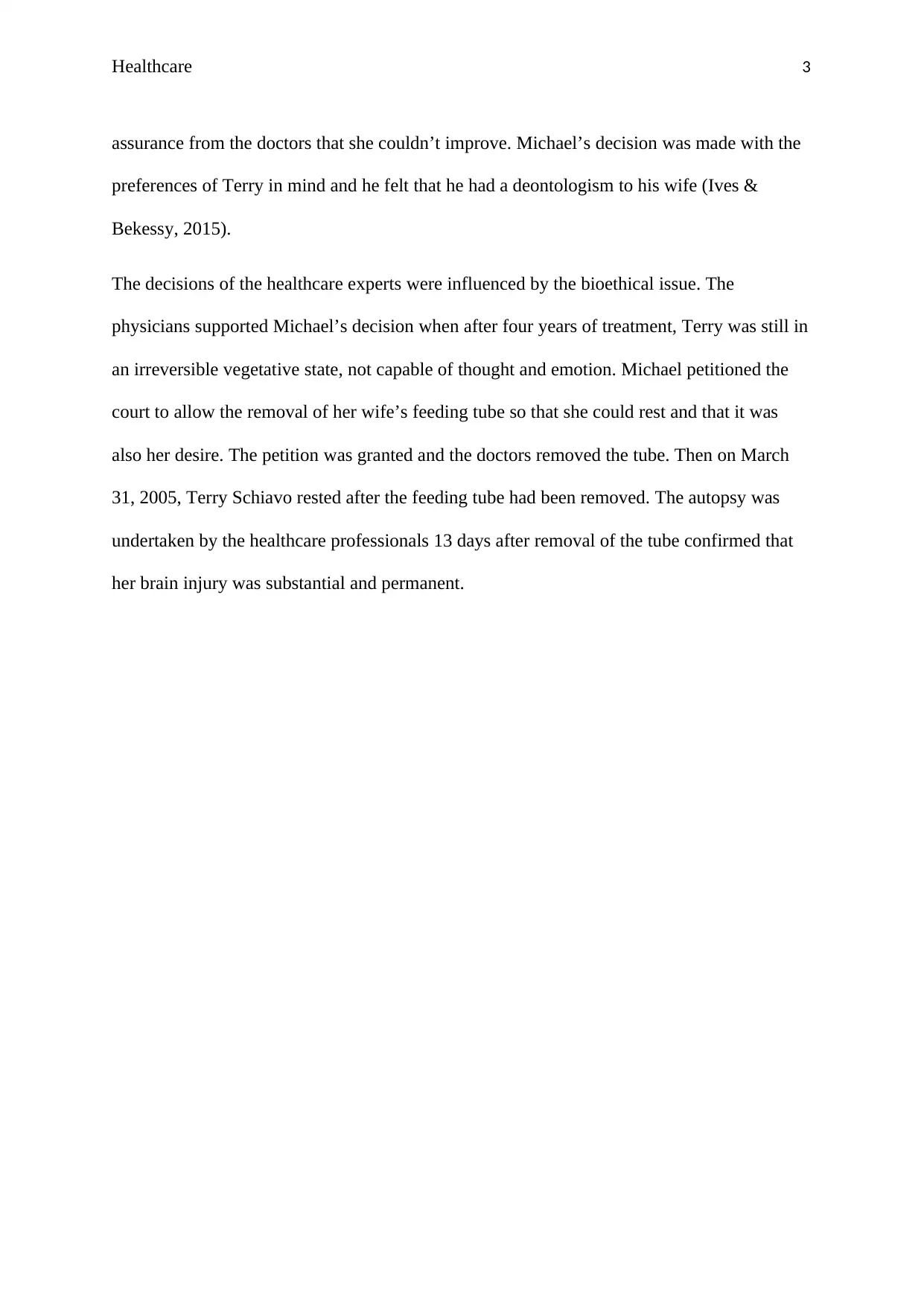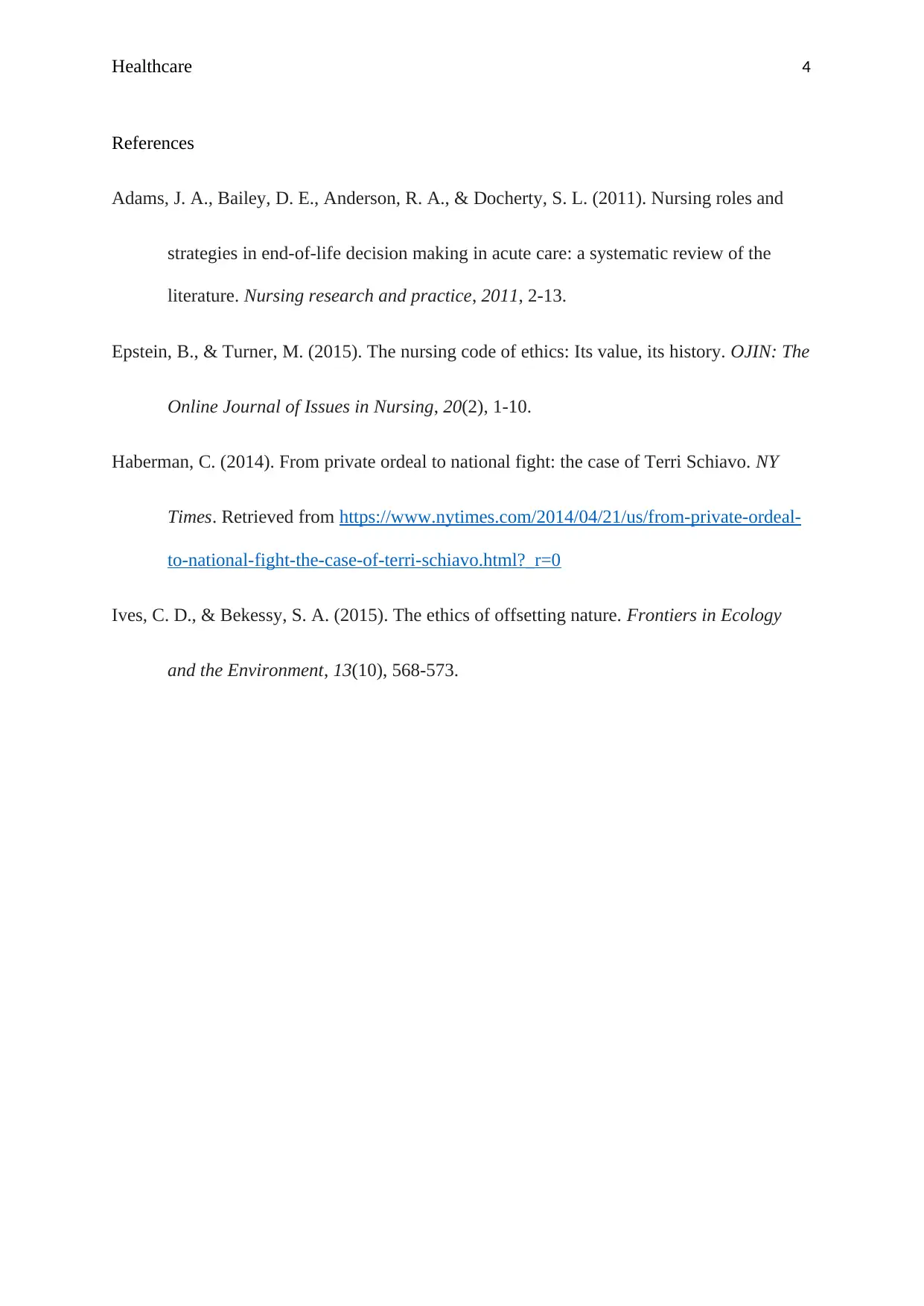Bioethical Issues in Healthcare: The Terri Schiavo Case Analysis
VerifiedAdded on 2023/04/22
|4
|773
|211
Report
AI Summary
This report provides an analysis of the Terri Schiavo case, a landmark legal and ethical dilemma in healthcare. The case involves Terri Schiavo, who suffered severe brain damage, leading to an irreversible vegetative state. The report examines the bioethical issues, including the conflict between her husband's wishes to remove life support and her family's desire to maintain it. It explores the roles of stakeholders such as Terri, her husband, parents, and healthcare professionals. The report delves into ethical principles like independence, faithfulness, privacy, and fairness, highlighting the challenges of end-of-life care and the impact of medical advancements on family decisions. It also discusses the influence of medical opinions and legal proceedings on the final decision to remove the feeding tube, emphasizing the importance of aligning moral beliefs with ethical and legal obligations in healthcare.
1 out of 4








![[object Object]](/_next/static/media/star-bottom.7253800d.svg)